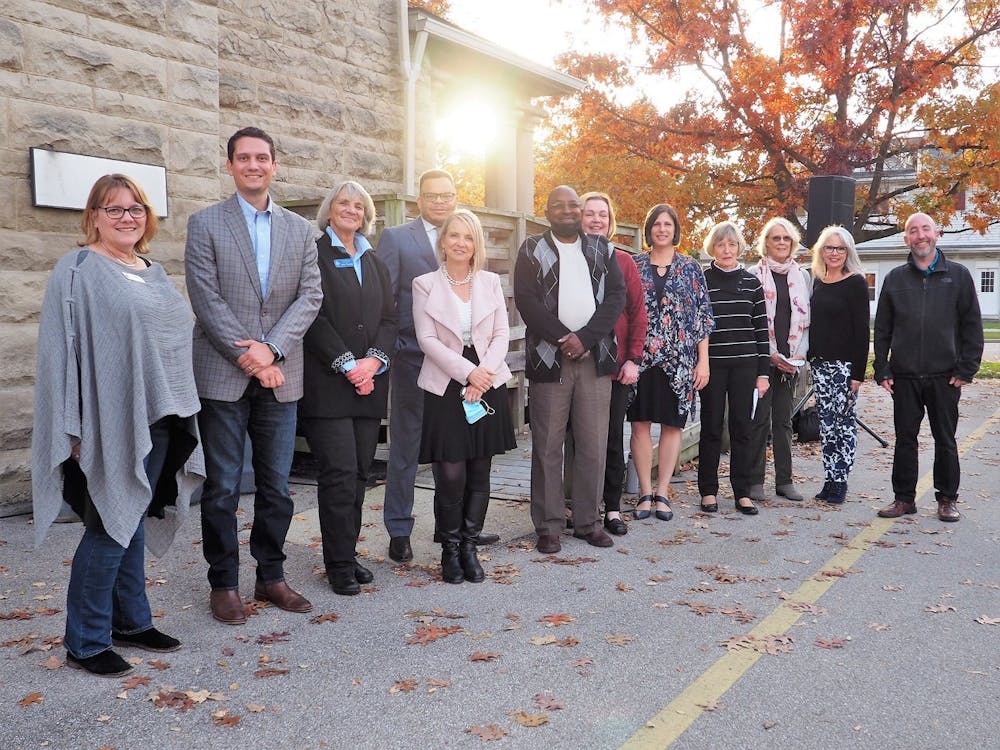United Way of Monroe County, the Community Foundation of Bloomington and Monroe County (CFBMC) and the South Central Housing Network collaborated on the Heading Home project in response to the long-term issue of housing instability. It’s an extensive and long term plan with strategies and initiatives to make homelessness rare, brief and non-repeating.
All three nonprofit organizations work to address the critical needs and opportunities of local communities.
Mary Morgan, the director of housing security at United Way of Monroe County said housing has become a challenging issue because of the lack of affordable housing in the present market.
The housing market conditions aren’t specific to Monroe County — it’s a nationwide issue. However, Morgan said the associated costs also impact one’s ability to pay for other household services like child care.
Inflation, the stress of lower incomes, substance abuse and several other factors make this a very challenging time for local residents, Morgan said.
When the pandemic began, Morgan said the general availability and expense of the housing market affected lower-income families and individuals the most. However, she said it affected a surprising amount of people with stable jobs as well.
“Heading Home is a strategic plan to guide our community to supporting long-term initiatives that increase housing security by reducing homelessness and increasing affordable housing,” Morgan said.
The plan uses a housing first model, meaning that providing housing to people experiencing homelessness is the utmost priority of the three organizations. Morgan said that the South Central Housing Network actually wrote the original Heading Home plan in 2014 with similar goals, but there were difficulties allocating staff to implement the plan.
The current proposal involves incentivizing landlords to prioritize low-income housing and expand healthcare access in order to help achieve rare homelessness. To address goals in making homelessness brief and non-repeating, the Heading Home team prioritized ongoing case management and employment for those experiencing or at risk of homelessness.
Following the pandemic, the need for affordable housing became clear and the CFBMC and United Way of Monroe County became more involved with the network’s initiative, she said. Alongside more than 100 stakeholders from various agencies – the city of Bloomington, Monroe County, neighboring townships and the South Central Housing Network – Morgan said United Way and CFBMC created a working group to update the plan.
She said the organization took a regional approach while editing and improving the initiative. United Way has a strong relationship with various shelter providers and did outreach in surrounding communities to assess people’s access to resources and support networks, she said.
Morgan said the revisions coincided with the availability of American Rescue Act funds, for which the Heading Home team applied and received $1.2 million from the county.
Moving forward, she said that all three nonprofits will continue to get solid data on the current situation and to assess Heading Home priorities.
United Way of Monroe Counties recently became a Built For Zero member and attended a conference in Chicago to meet other members and learn about their success stories towards functional zero, meaning continuously rare and brief homelessness.
Built For Zero is a nationwide movement led by Community Solutions to effectively resolve homelessness.
“We’re also just looking for ways that Heading Home can support multiple agencies,” Morgan said.
Efrat Feferman, the executive director of United Way of Monroe County, said that throughout this process, the pandemic highlighted the timing bottleneck in the Heading Home efforts to prioritize housing options.
She said United Way is used to partnering together with CFBMC on community-wide needs and issues, and she’s pleased with the collaborative efforts and future ahead.
Feferman said Heading Home is certainly an ambitious and long-term plan to implement, but the results would be immediate and impactful.
Tina Peterson, the president and CEO of CFBMC, said the designated committees will be working to provide the community with opportunities, greater funding and long-term strategies to alleviate the effects of unstable housing. She said she wanted to thank the board members and new partners and staff that worked on the plan, because it’s a collective effort and that has put infrastructure in place.




